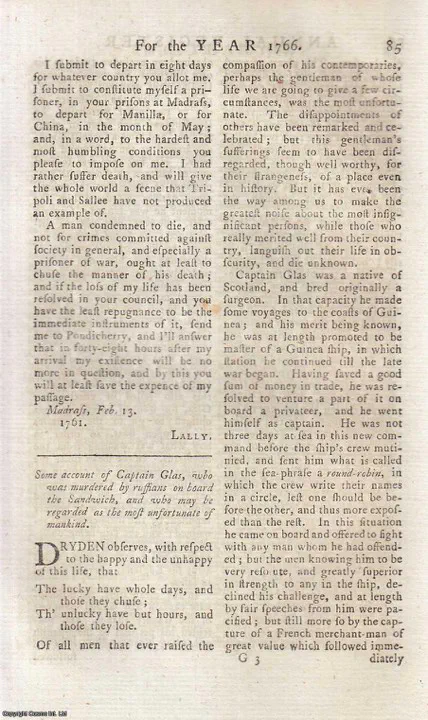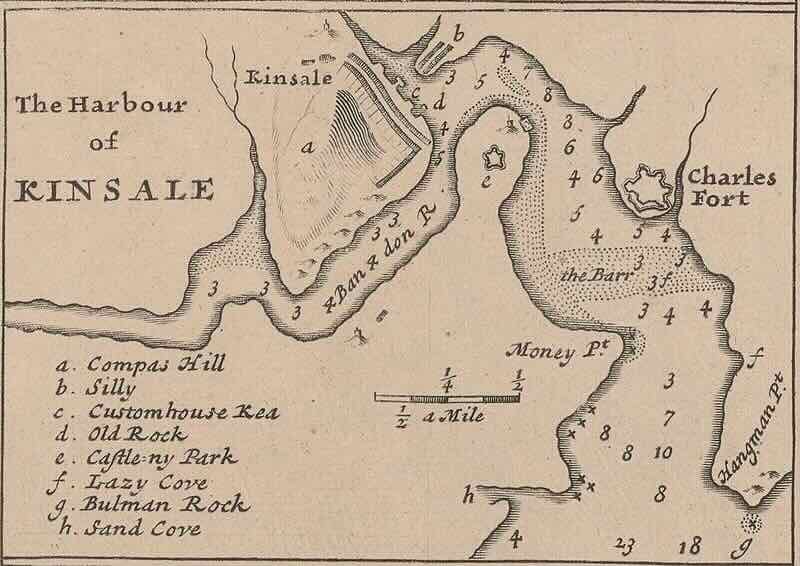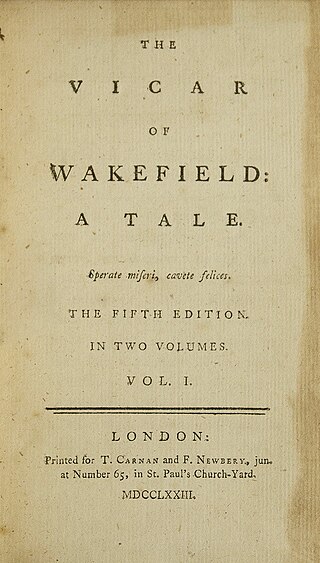- March 3, 1766
The trial and conviction of four pirates for the murder of Captain Cochrane, Captain Glass, and others on the high seas. This case is associated with the notorious pirate activity during the early 18th century, a period when piracy was a significant threat to maritime trade and navigation.
Piracy cases during this era were handled with utmost seriousness due to the threat they posed to international commerce and security. Trials were often conducted in Admiralty courts, which had jurisdiction over maritime matters, including piracy.
The execution of justice in such cases was swift and severe, with those found guilty of piracy typically facing capital punishment. The aim was not only to punish the perpetrators but also to deter others from engaging in piracy. Public executions were common, serving as a grim reminder of the consequences of piracy.
Captain George Glas
George Glas (1725 – 30 November 1765) was a Scottish seaman and merchant adventurer in West Africa.
The son of John Glas, the divine, Glas was born at Dundee in 1725, and is said to have been brought up as a surgeon. He obtained command of a ship which traded between Brazil, the northwest coasts of Africa and the Canary Islands.
In March 1765 the ships company at Port Hillsborough was attacked by the natives and several members of it killed. The survivors, including Mrs and Miss Glas, escaped to Tenerife. In October following, through the representations of the British government, Glas was released from prison. With his wife and child he set sail for England on board the barque Earl of Sandwich. On 30 November British mariners George Gidley, Richard St. Quinton, Peter McKinlie and a Dutchman Andres Lukerman,[2] who had learned that the ship contained much treasure, mutinied, killing the captain and passengers. Glas was stabbed to death, and his wife and daughter thrown overboard. The murderers were afterwards captured and hanged at Dublin.
Treasure Island
There is some evidence to suggest that Robert Louis Stevenson based his novel Treasure Island in part on the murders of the Glas family. He grew up in the shadow of the Glasite church in Edinburgh. After the death of Glas the British Government appears to have taken no steps to carry out his project.

 ← Kinsale by-election was triggered by the death of John Folliott
← Kinsale by-election was triggered by the death of John Folliott First publication of The Vicar Of Wakefield by Oliver Goldsmith →
First publication of The Vicar Of Wakefield by Oliver Goldsmith →